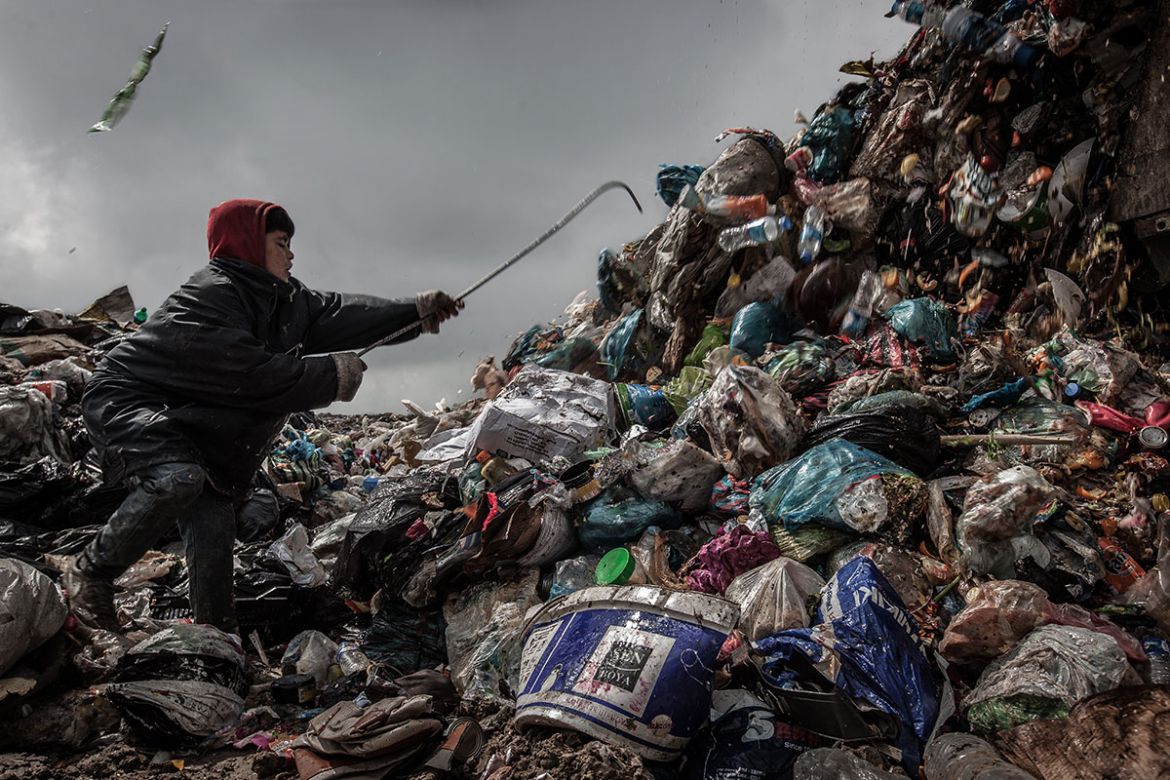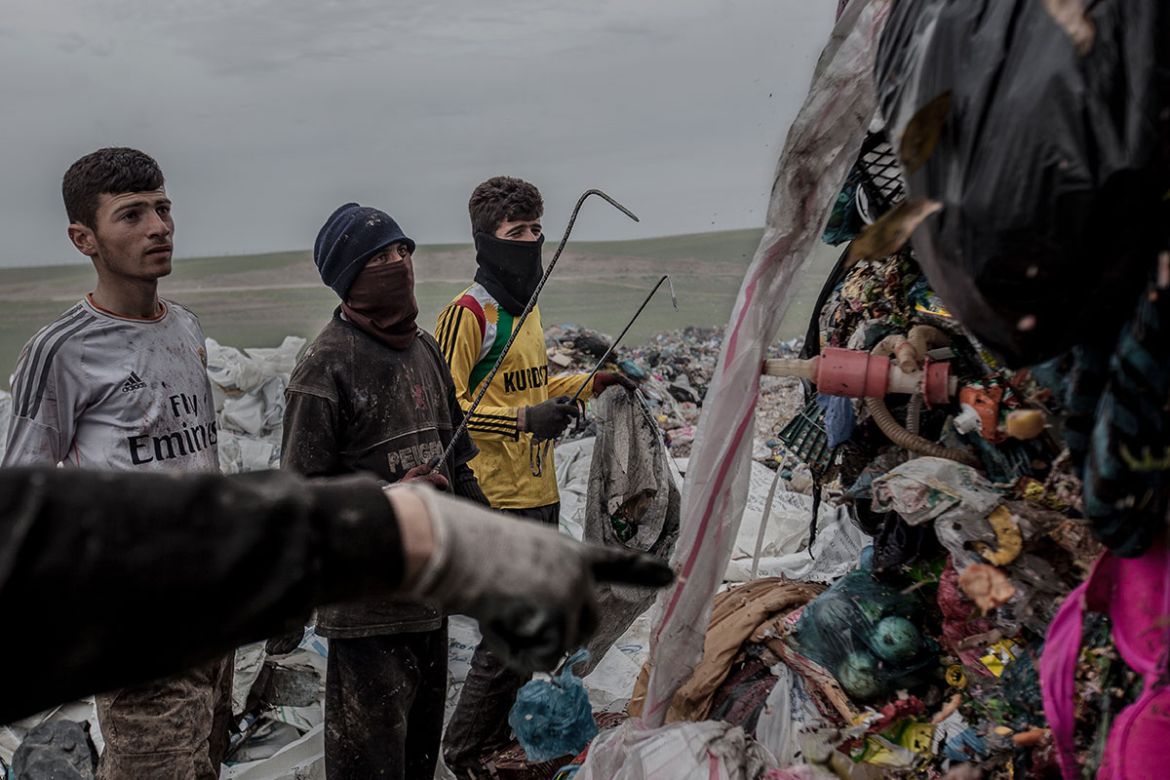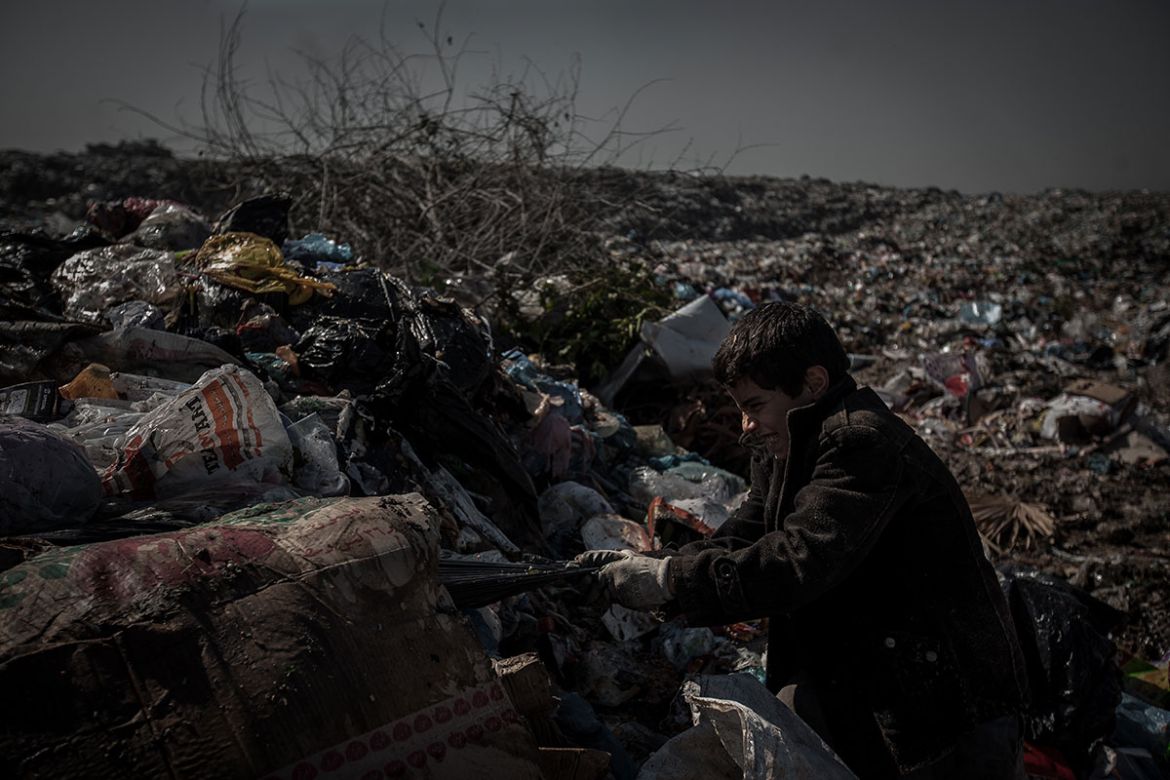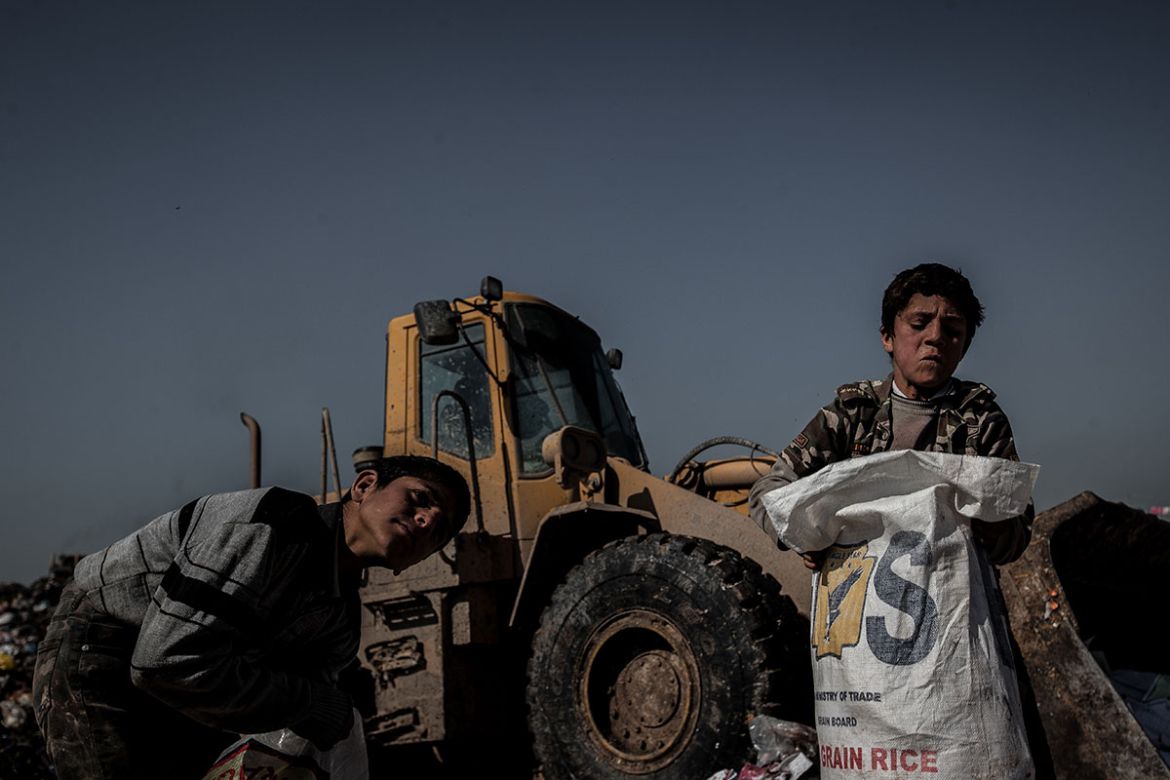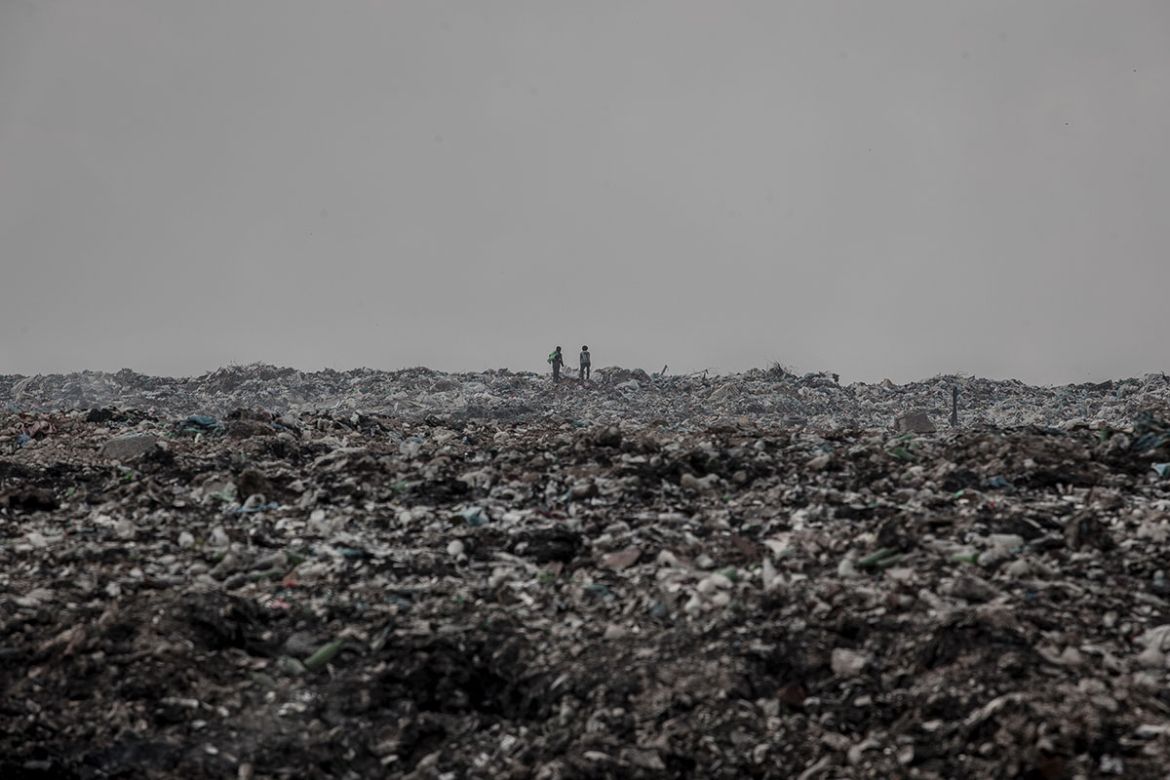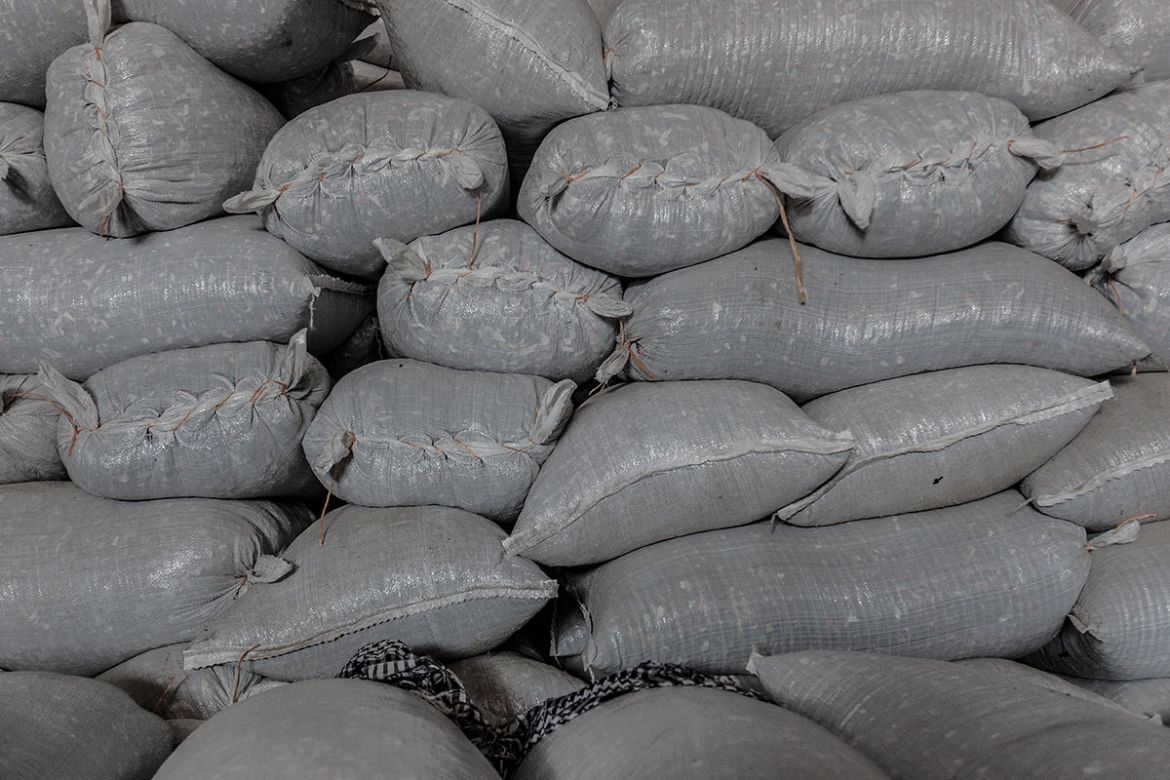In Pictures
Iraqi children scavenge for a living
After fleeing from ISIL, dozens of young Iraqis spend their days searching through rubbish heaps for valuable scraps.
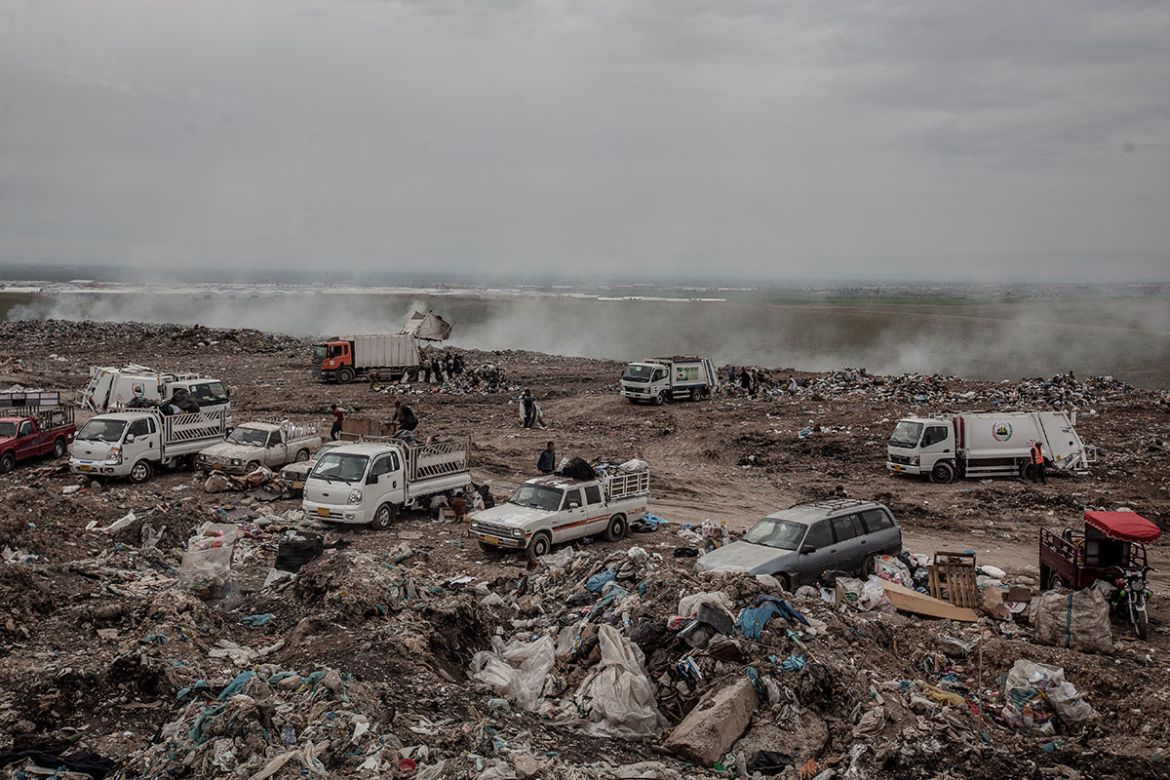
Standing next to a pile of rubbish as high as a hill, Ali, a 12-year-old child from Mosul, looks excitedly at his latest discovery.
“They say it’s expired, but I am still eating it,” he says, popping a strawberry candy into his mouth.
Like Ali, dozens of displaced Iraqi children who fled from the Islamic State of Iraq and the Levant (ISIL, also known as ISIS) group are now working in a massive landfill site 15km outside Erbil, the capital of Iraq’s Kurdish region. They scavenge their way through tonnes of rubbish to collect plastic and metal to sell to recycling plants, making between 10,000 and 30,000 Iraqi dinars ($9 to $27) a day.
“This is not an appropriate place for children, but they are forced to do it,” landfill supervisor Ali Hessah told Al Jazeera, saying that he leaves the gates of his rubbish tip open so that displaced children and their parents can work.
“This is not a life, but we have no choice,” said Ahmed, 16, who fled Mosul a year and a half ago. No longer in school, Ahmed and his 12-year-old brother are now among the children who scavenge for a living.

